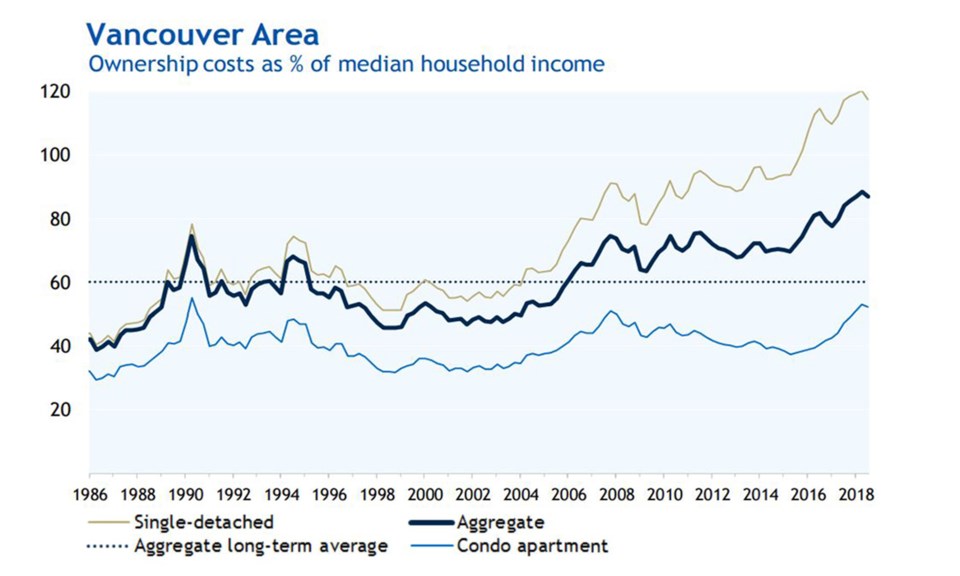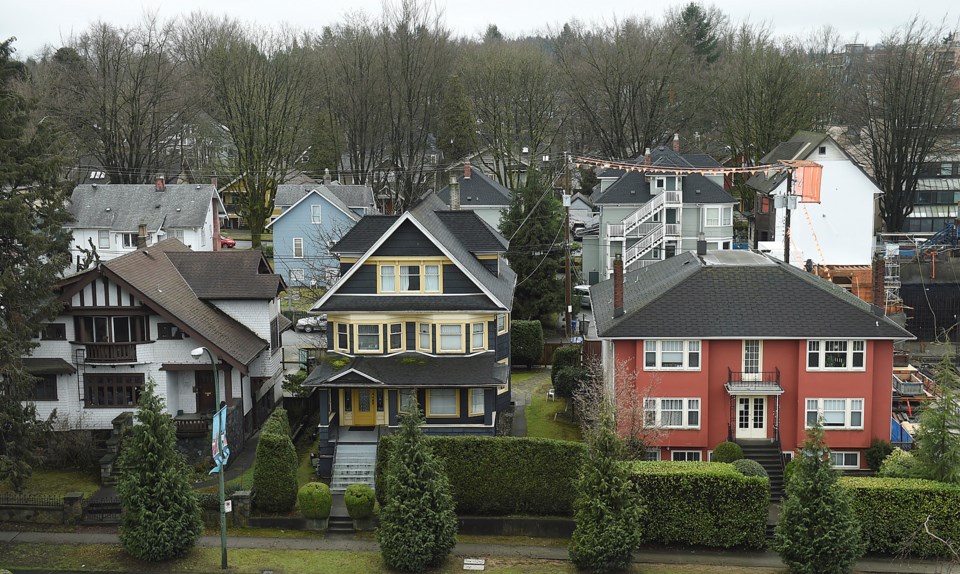The series of interest rates hikes and the pressures of the mortgage stress test are keeping a Metro ┬щ╢╣┤л├╜╙│╗нhome out of the reach of many, according to Royal Bank of CanadaтАЩs .
The regionтАЩs high home prices are still at a тАЬcrisis-level affordabilityтАЭ when compared with local incomes, despite home prices flatlining and even dropping in some areas and property types, reported the bank.
RBCтАЩs affordability index for the ┬щ╢╣┤л├╜╙│╗нCensus Metropolitan Area in 2018тАЩs third quarter was 86.9 per cent, which is 1.7 percentage points lower than the previous quarter, but still close to the record high.
An index of 86.9 per cent means that a person with an average local income would have to spend 86.9 per cent of that income on housing costs to buy an average priced home (aggregate of property types, assuming a 20 per cent down payment).

Single-detached homes were even higher than that, at nearly 120 per cent, while even the average condo was unaffordable at well over 50 per cent of local earnings.
In order to pass the mortgage stress test and service a mortgage on an aggregate-priced home in Metro ┬щ╢╣┤л├╜╙│╗нat an affordable level, the income required was a whopping $211,000 in the third quarter.
RBC said in its report, тАЬThe home ownership bar is still incredibly high for [Metro] ┬щ╢╣┤л├╜╙│╗нbuyers тАУ pretty much the highest itтАЩs ever been in Canadian historyтАж Crisis-level affordability weighed heavily on the market this year. Resale activity plunged 31 per cent from a year ago with few signs so far that the bottom has been reached. Demand has weakened so much that the few buyers out there are now able to get some price concessions from sellers. We expect prices to decline somewhat in 2019.тАЭ
However, the bank added that it expected affordability levels to stay approximately where they are, despite falling prices, as they will be largely cancelled out by further interest rate increases.The report said, тАЬWe expect the Bank of Canada to hike the overnight rate two more times next year, which will sustain upward pressure on ownership costs. Still, we donтАЩt think that affordability is set to erode significantly either. A generally soft environment for prices and rising household income will contain some of that pressure.тАЭ
Nationwide, the affordability index increased to its worst level in Canada since 1990, when interest rates were extremely high. A key reason for the near-record levels is that while ┬щ╢╣┤л├╜╙│╗нand TorontoтАЩs indexes have barely improved, other major cities тАУ especially Montreal тАУ are deteriorating.
RBC said of the national index, тАЬIt would have taken 53.9 per cent of a typical householdтАЩs income to carry the ownership costs of average home bought last quarter. This is up 1.5 percentage points from a year ago.тАЭ
RBCтАЩs affordability index compares local average incomes with local average home prices, but it does not take into account any private wealth, non-local incomes, equity built up by the approximately 65 per cent of Metro Vancouverites who own a home, or generational wealth transfer to younger buyers.



